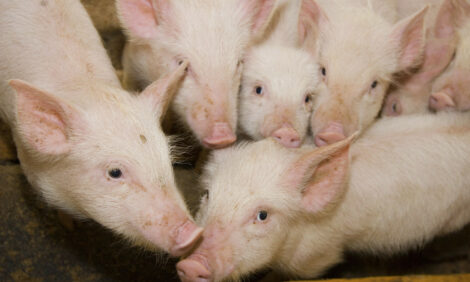



Good Practice the Best Defence Against PWCS
CANADA - Bruce Cochrane writes that the Western College of Veterinary Medicine suggests that adherence to good production practices is the best defence against Postweaning Wasting Catabolic Syndrome (PWCS).Postweaning Wasting Catabolic Syndrome affects baby pigs with symptoms showing up within two to three weeks after weaning.
The condition was first discussed by veterinarians at the 2008 Leman Swine Conference in Minnesota.
Dr John Harding, an associate professor with the Western College of Veterinary Medicine, describes PWCS as a postwean starvation where piglets fail to eat and lose substantial amounts of body weight.
Dr John Harding-Western College of Veterinary Medicine
The clinical signs are different than what we would see with circovirus in that circovirus typically affects pigs that are much older.
Certainly three to four weeks postweaning is where we would start to see some circovirus problems and, obviously with the advent and widespread use of circovirus vaccinations, we really don't see very much circovirus any more.
Lesions are unique and clinical signs are unique from circovirus and that's what really got us on to this back a couple of years ago in that these are vaccinated pigs and they still seem to be losing weight and not competing very well.
We're very fortunate in Canada to have a good diagnostic system with great expertise in our diagnostic labs both from the point of view of anatomical pathology as well as from molecular expertise here and if there is something causing this in western Canada we'll be sure to find it.
I think the reason we keep on seeing new diseases in western Canada is not because we're more disease-ridden than other parts of the world.
It's just that we've got better diagnostic systems, we've got great expertise and we've got high-health farms which is the easiest farm to identify new pathogens so it doesn't say anything about new disease in western Canada.
I know that's a concern in the industry.
It's just that's the way the industry works.
Dr Harding suggests the best defence is good management practices in the nursery – everything from sanitation to nutrition to ventilation –, to control this condition and any other diseases that may be affecting pigs.








